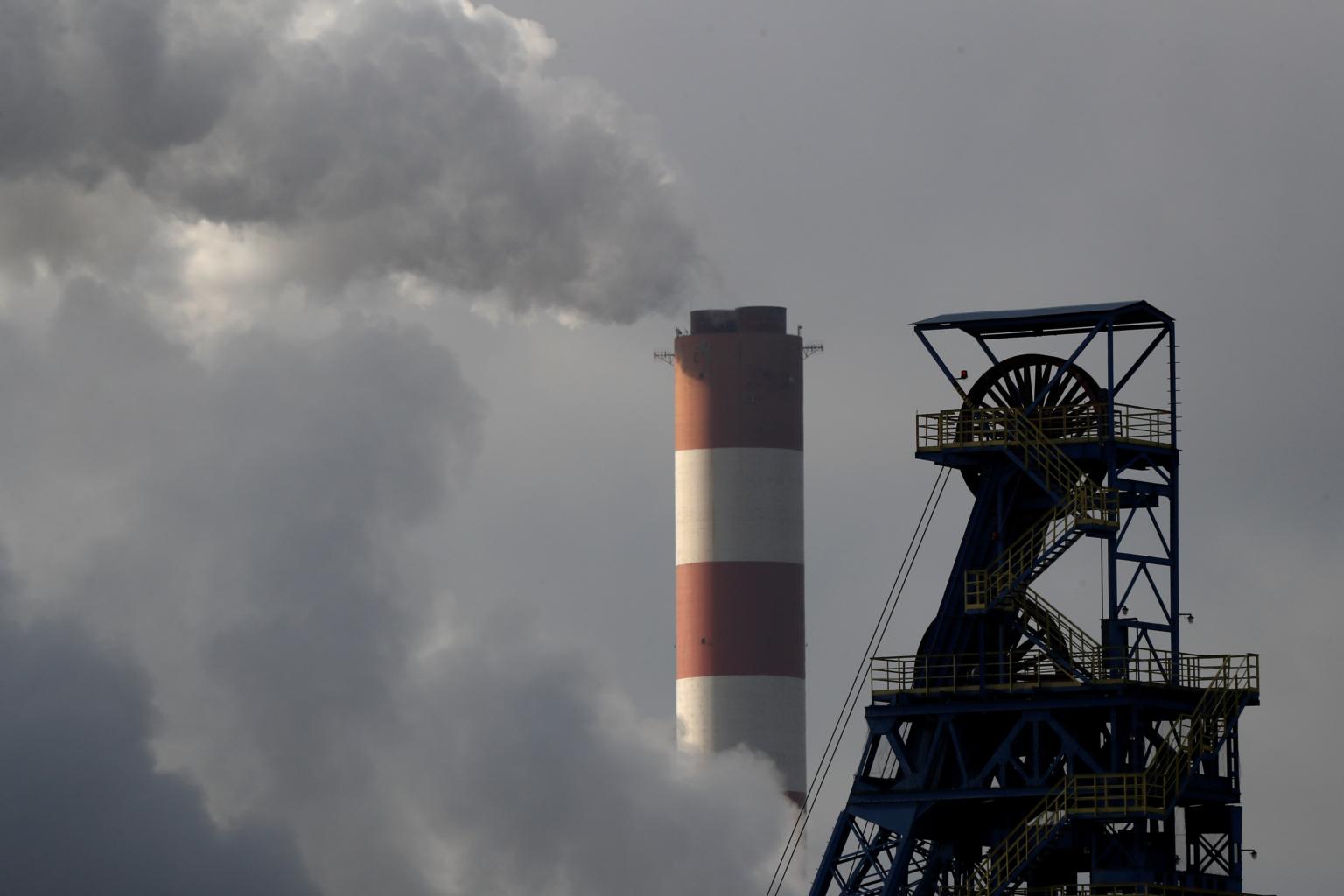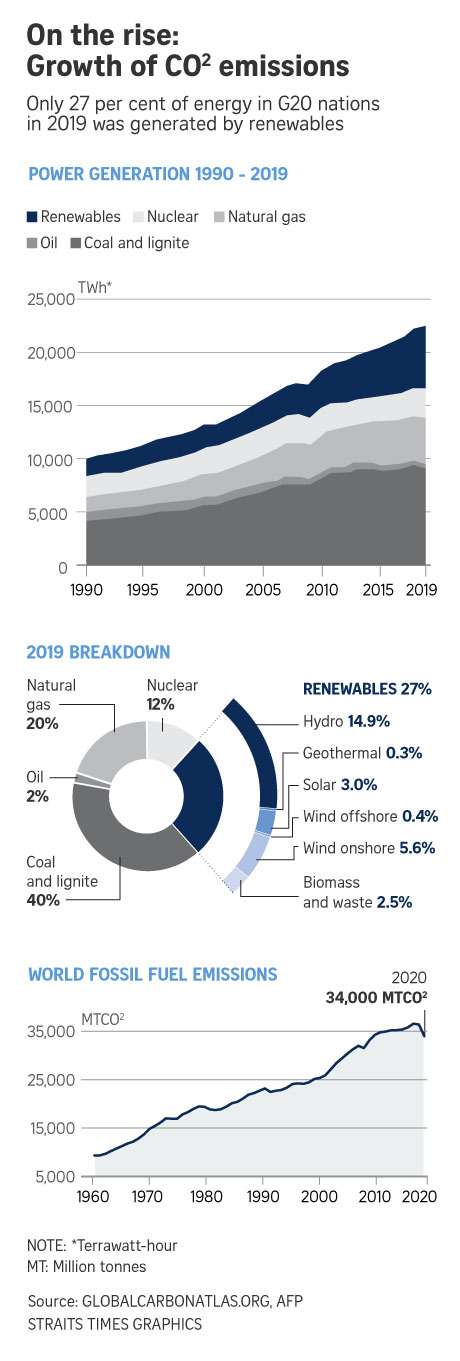Carbon emissions fell record 7 per cent in 2020: Study
Sign up now: Get ST's newsletters delivered to your inbox

The fall of an estimated 2.4 billion tonnes is considerably larger than previous annual record declines.
PHOTO: REUTERS
SINGAPORE - Global emissions from burning fossil fuels fell a record 7 per cent this year because of lockdowns and travel restrictions, an analysis by an international consortium of researchers released on Friday (Dec 11) has found.
Total carbon dioxide (CO2) emissions from industry, power generation and transport fell 2.4 billion tonnes to 34 billion tonnes, a drop much greater than the reduction caused by the global financial crisis about a decade ago.
But while the drop might be an unintended "upside" from the pandemic, it will have little impact on slowing the pace of climate change. The CO2 emissions produced this year - about the same level as in 2012 - are still much greater than can be absorbed by the world's forests, oceans or soils, meaning CO2 levels in the atmosphere are still expected to keep increasing.
"We've never seen anything like this drop," said Dr Pep Canadell, executive director of the Global Carbon Project, which carried out the Carbon Budget 2020 analysis, an annual snapshot of global CO2 emissions.
Emissions reductions this year were most pronounced in the United States, down 12 per cent, and the European Union, down 11 per cent.
But in China, emissions were estimated to fall just 1.7 per cent because their intense lockdowns ended early and the economy has had more time to recover than most other nations.
But in China, emissions were estimated to fall just 1.7 per cent because their intense lockdowns ended early and the economy has had more time to recover than most other nations.
By sector, emissions from surface transport, such as cars, trucks and buses, accounted for the largest share of the global decrease, falling by roughly half at the peak of the first Covid-19 wave in April.
Emissions from industry (22 per cent of global total emissions) were down 30 per cent in some countries with the strongest lockdown measures.
Emissions from power production (44 per cent of global emissions) were cut up to 15 per cent in countries at the peak of the Covid lockdowns.
Aviation has been among the hardest-hit sectors, and emissions plunged by about 75 per cent in some countries. But this had only a small effect because aviation accounts for just 2.8 per cent of global emissions.
The findings come a day before a major summit of world leaders to mark the fifth anniversary of the 2015 Paris Climate Agreement. The aim of the summit is to step up efforts to cut global greenhouse gas emissions through deeper carbon cutting pledges and more investments in clean energy, transport and better protection of nature, such as forests.
The record fall in CO2 emissions also raises the question of what will happen once the pandemic eases.
During the financial crisis, emissions fell about 1.5 per cent in 2009 but then jumped 5 per cent in 2010, fuelled by a flood of stimulus cash. It's not clear if that will happen this time, said Dr Canadell.

He pointed to two major changes since the last crisis. Firstly, huge amounts of green stimulus spending pledged by the European Union, incoming US President Joe Biden, Japan, South Korea and others that could help accelerate the switch away from fossil fuels. This level of funding for green economies and jobs has never been made available before, he said.
Secondly, the recent carbon neutrality pledges by China, Japan and South Korea, which joined the EU in pledging their economies would reach net-zero carbon emissions by mid-century.
"What I see is an opportunity," said Dr Canadell. "The conditions have been made favourable for us to decide to do something about climate change."
Prior to the pandemic there was frustration about the slow pace of global climate action, he said. "We have a pandemic and all these countries make these huge commitments. This is extraordinary."
The challenge is that emissions have to fall sharply this decade if the world has a chance of keeping global warming to within 1.5 degrees C above pre-industrial levels, a key goal of the Paris Climate Agreement.
Up until last year, emissions have grown annually since the 2015 accord, and the United Nations says they must fall 7.6 per cent annually by 2030 to stick to the 1.5 deg C temperature cap. Beyond that level, scientists say global warming impacts, from rising sea levels to droughts and storms to crop losses, would sharply increase.


